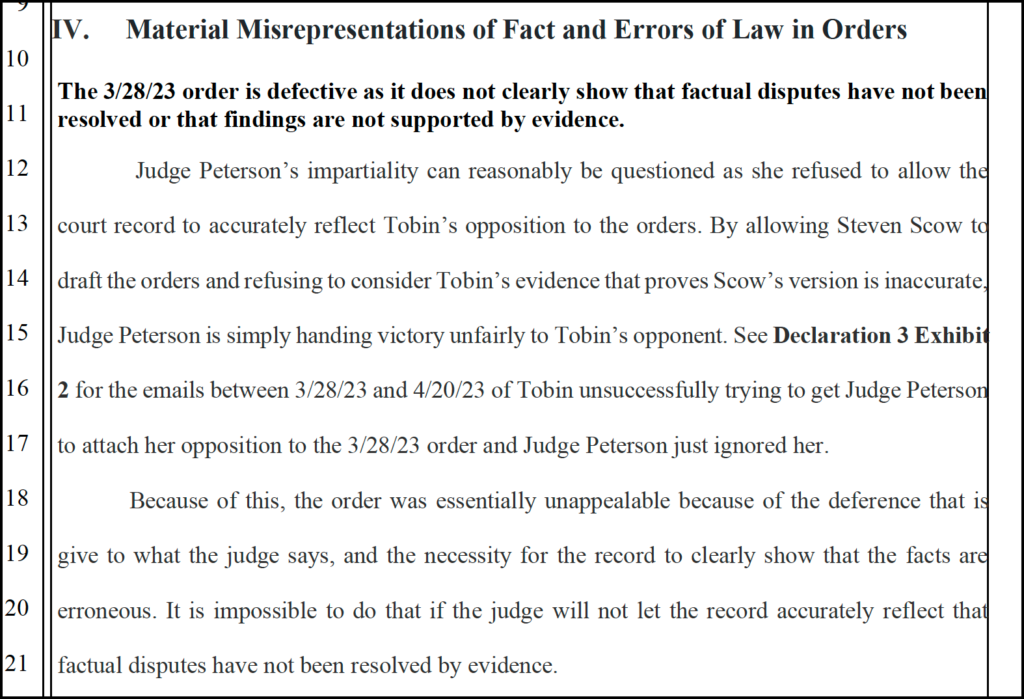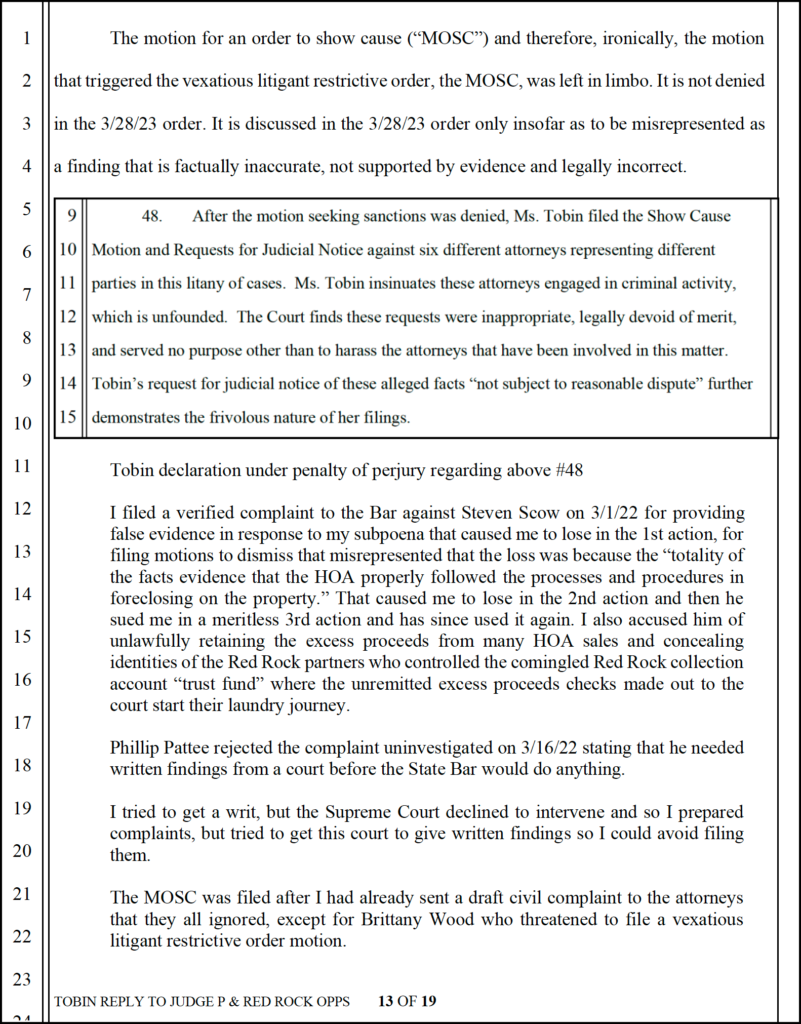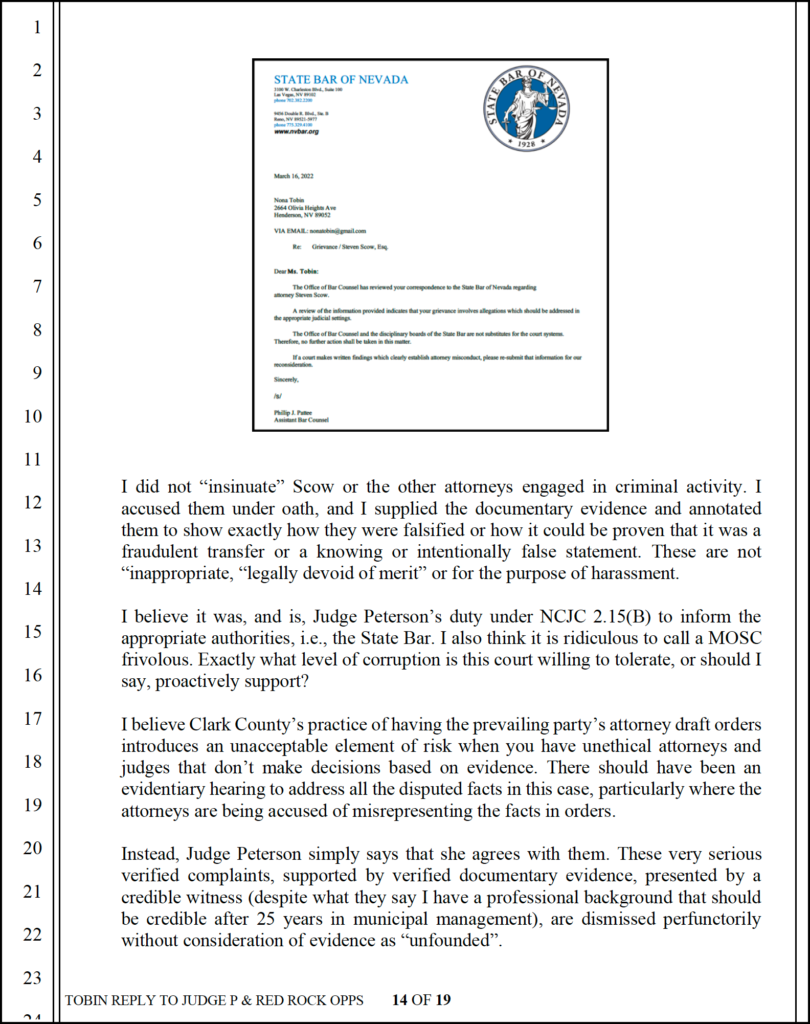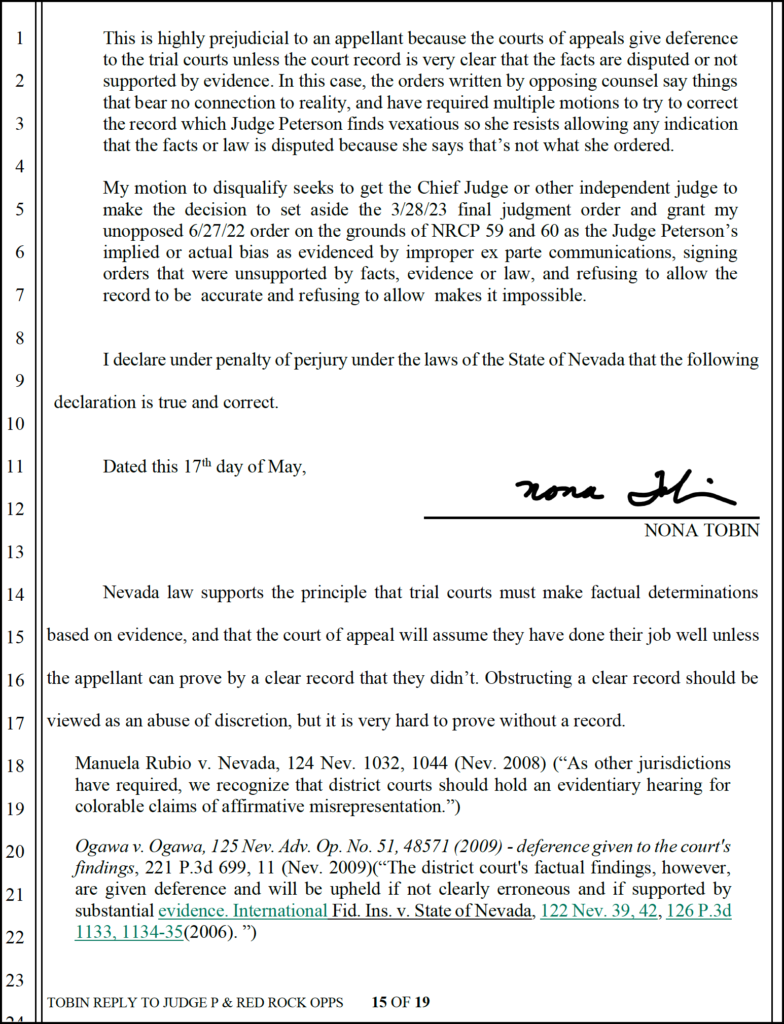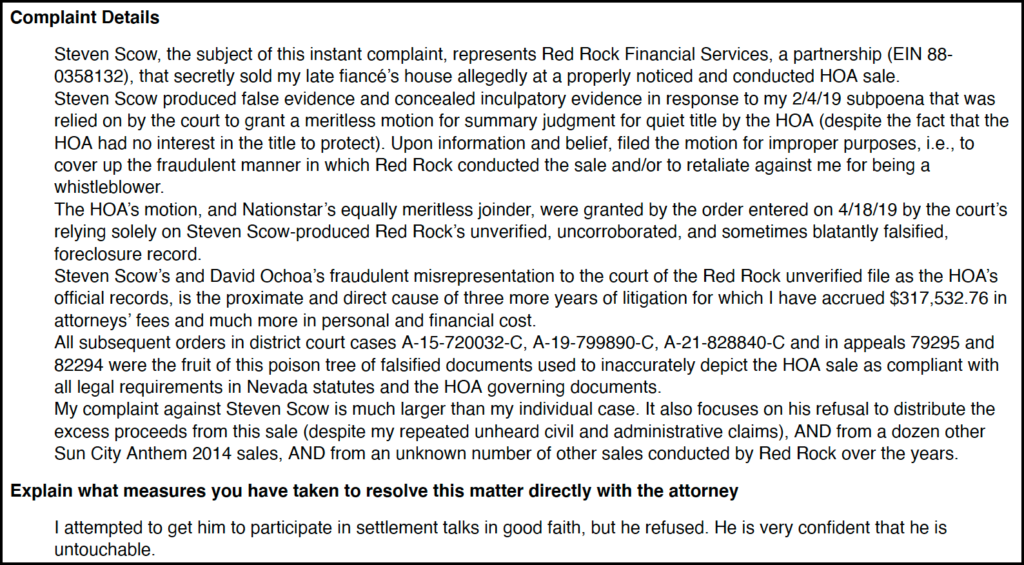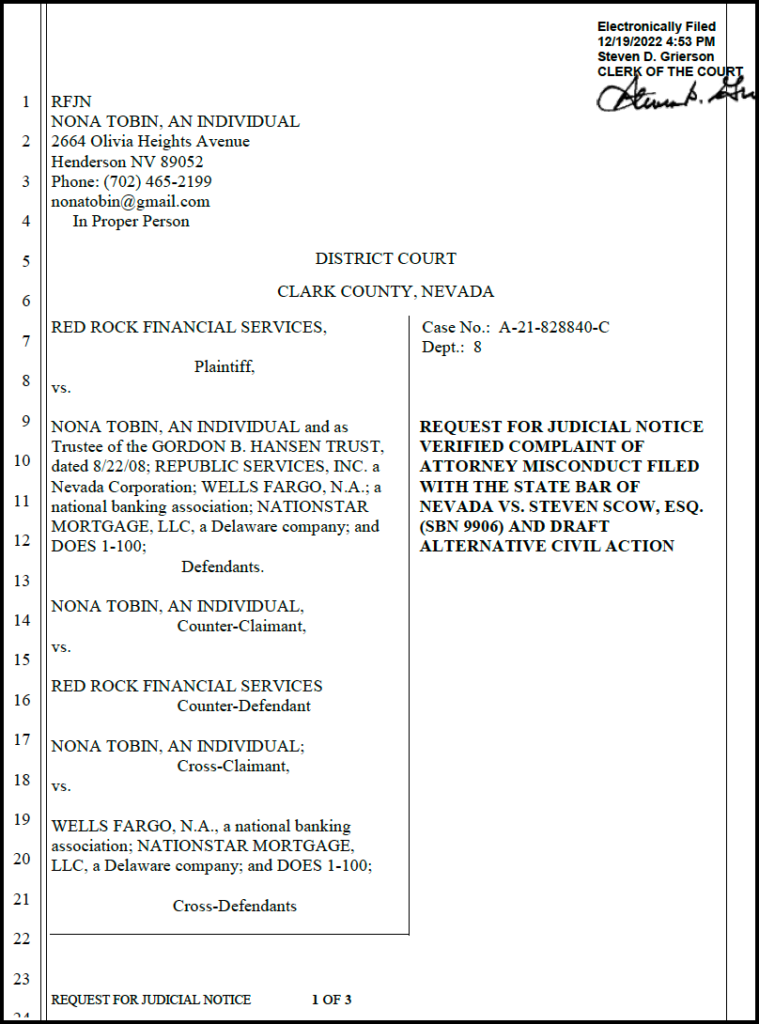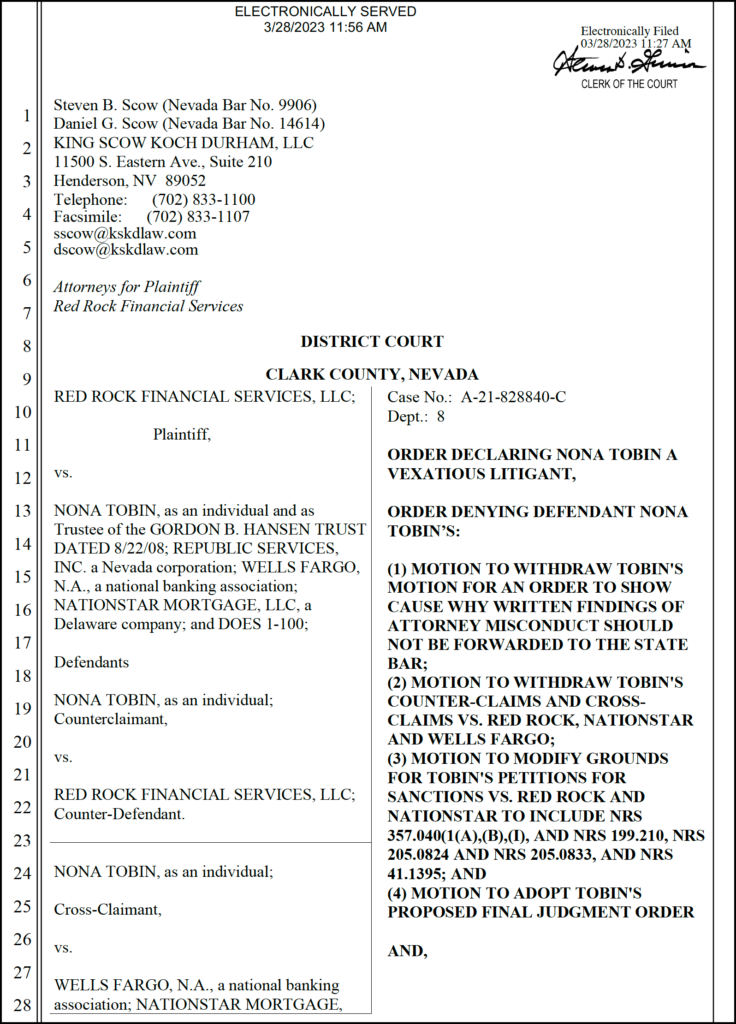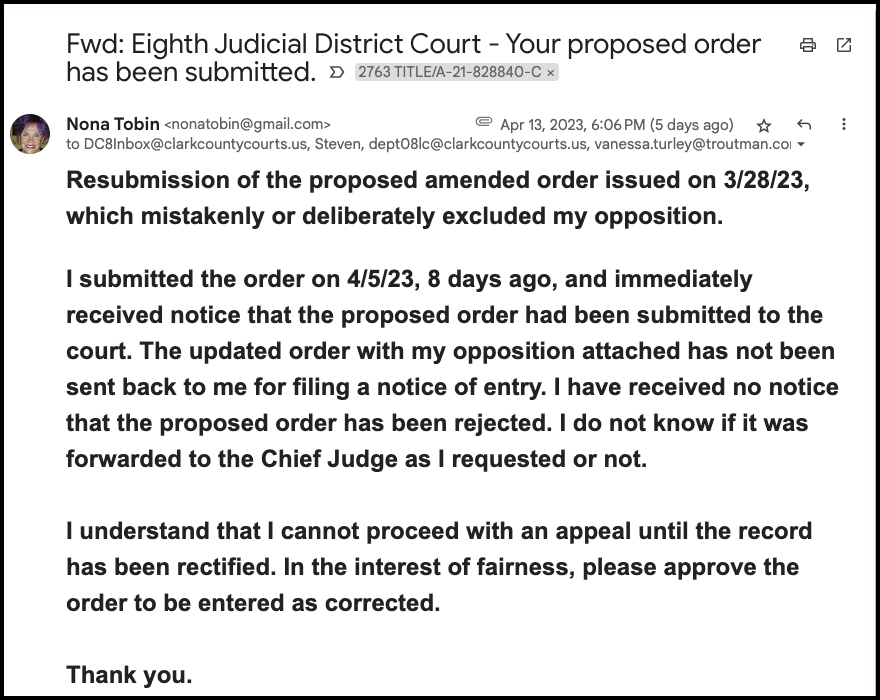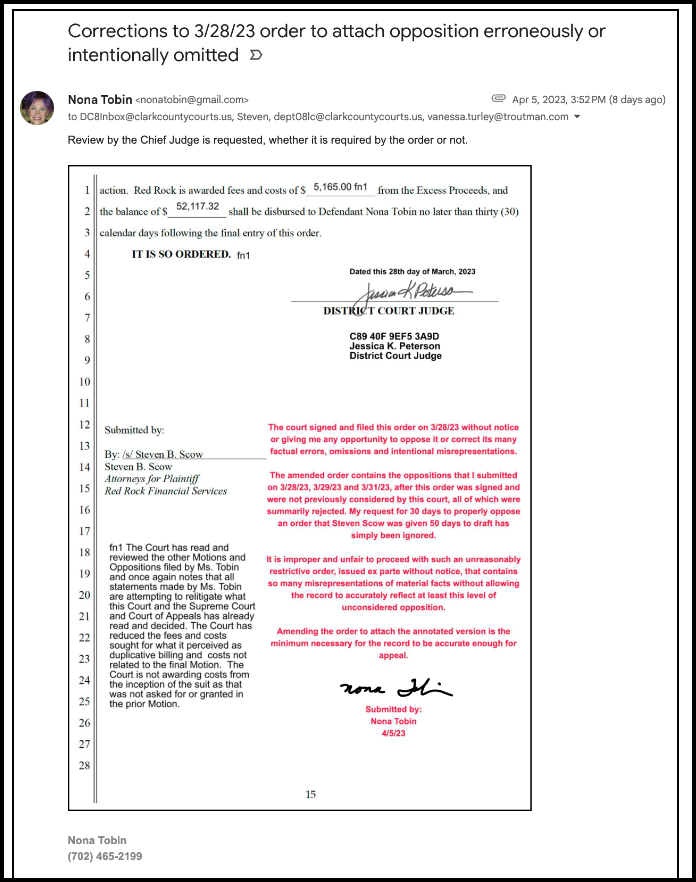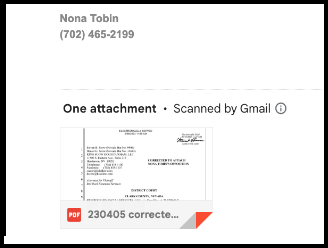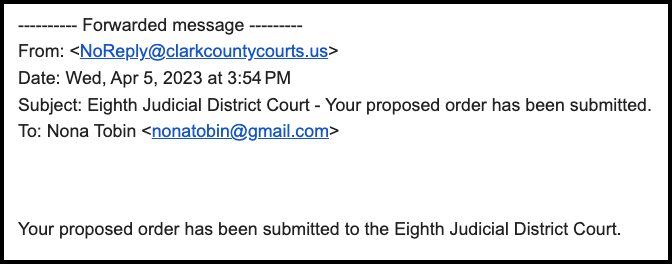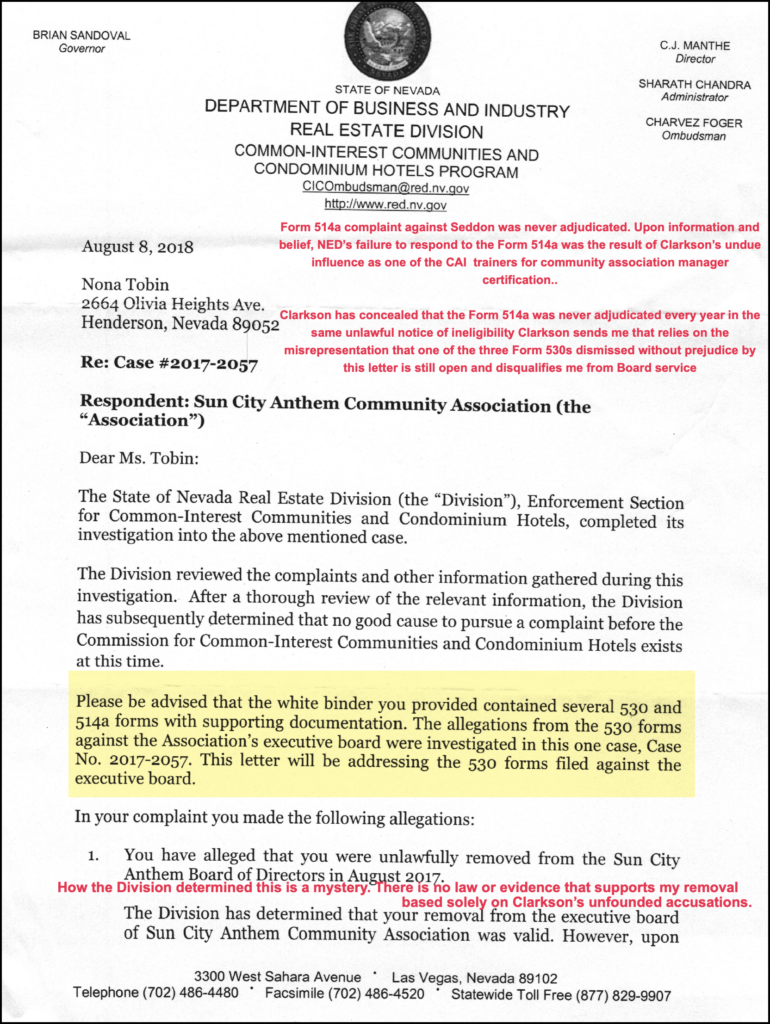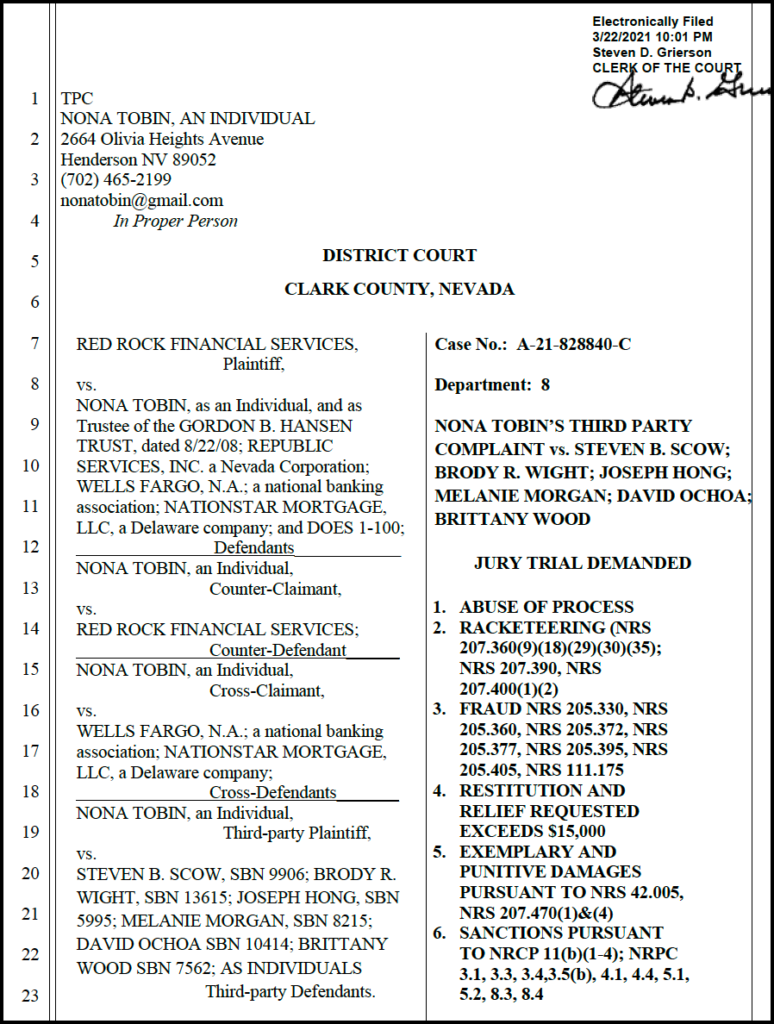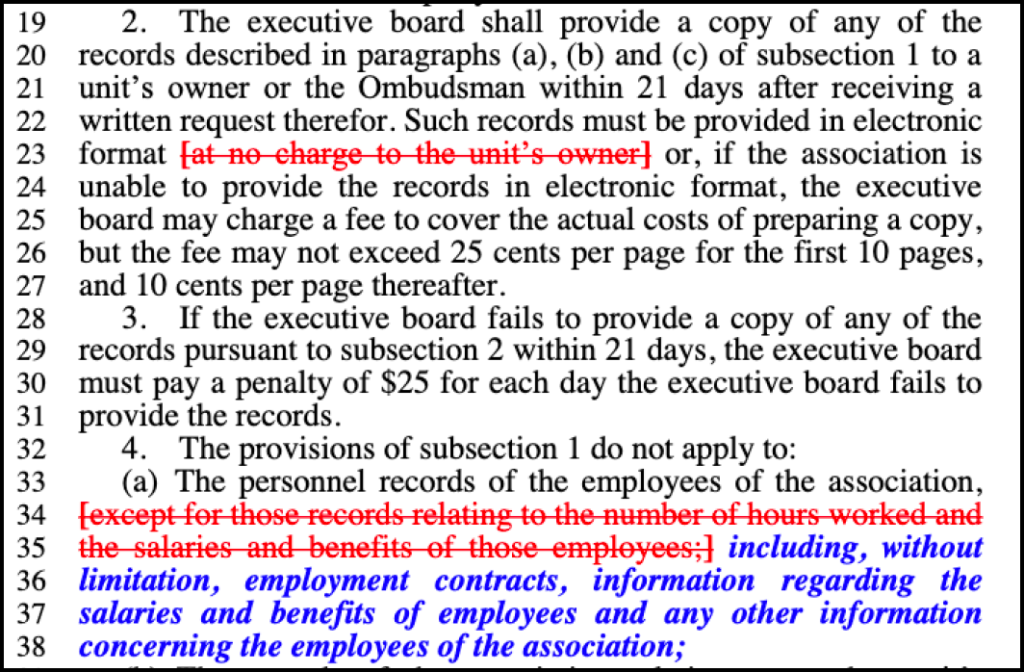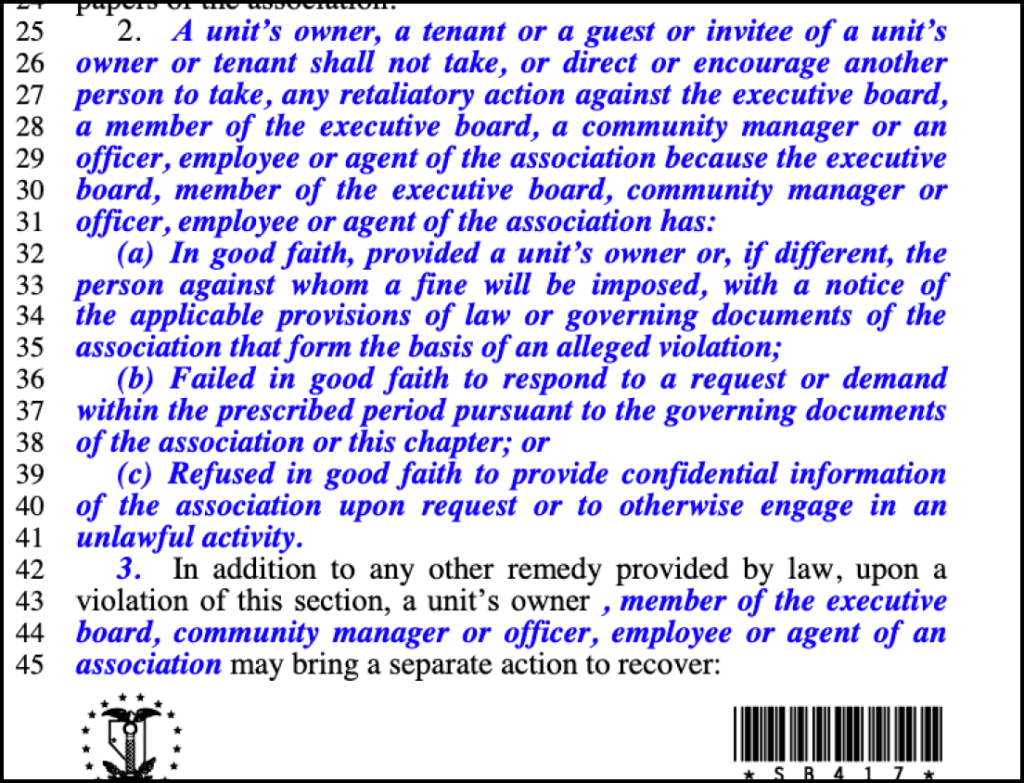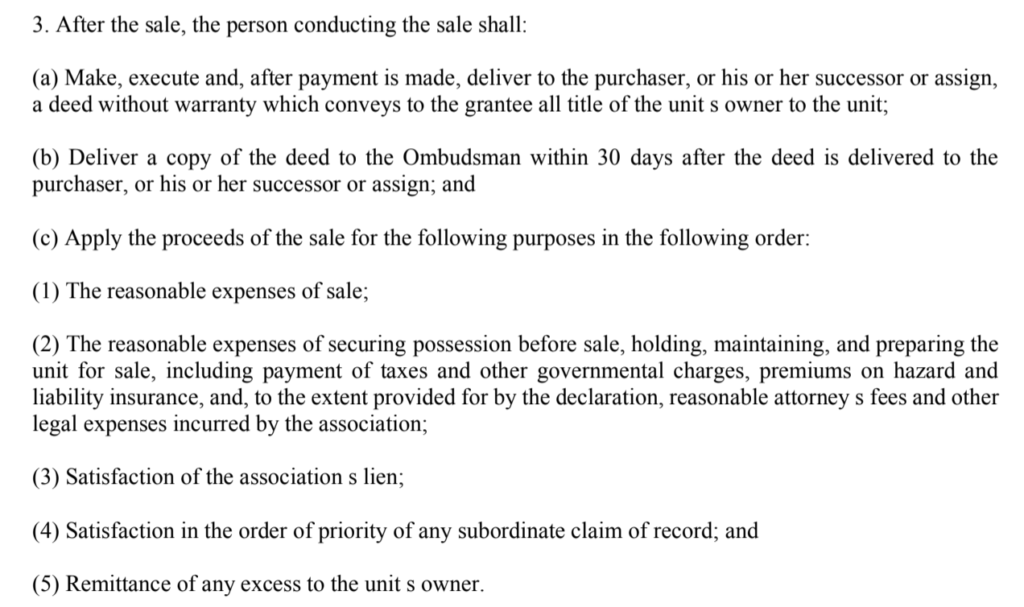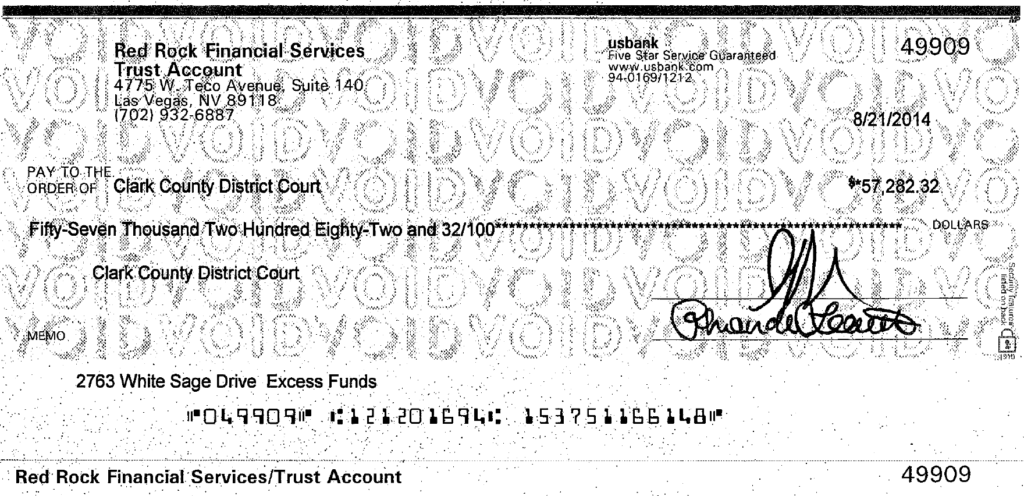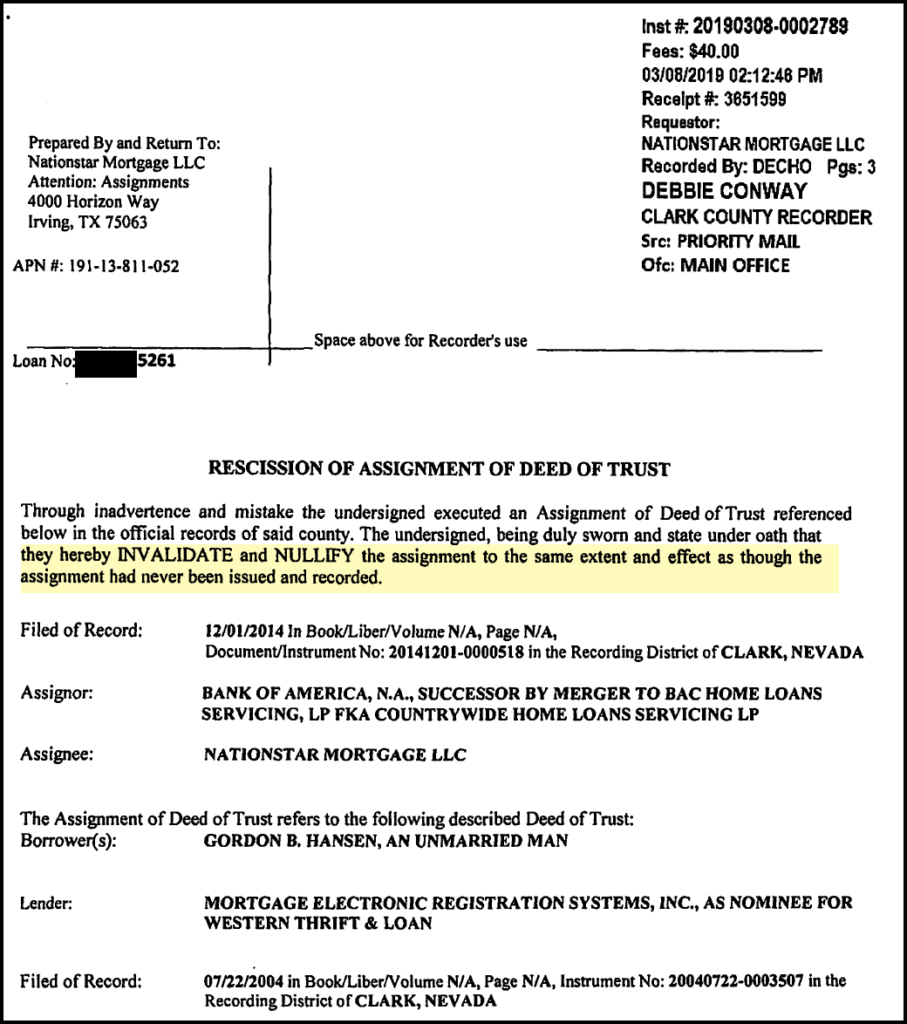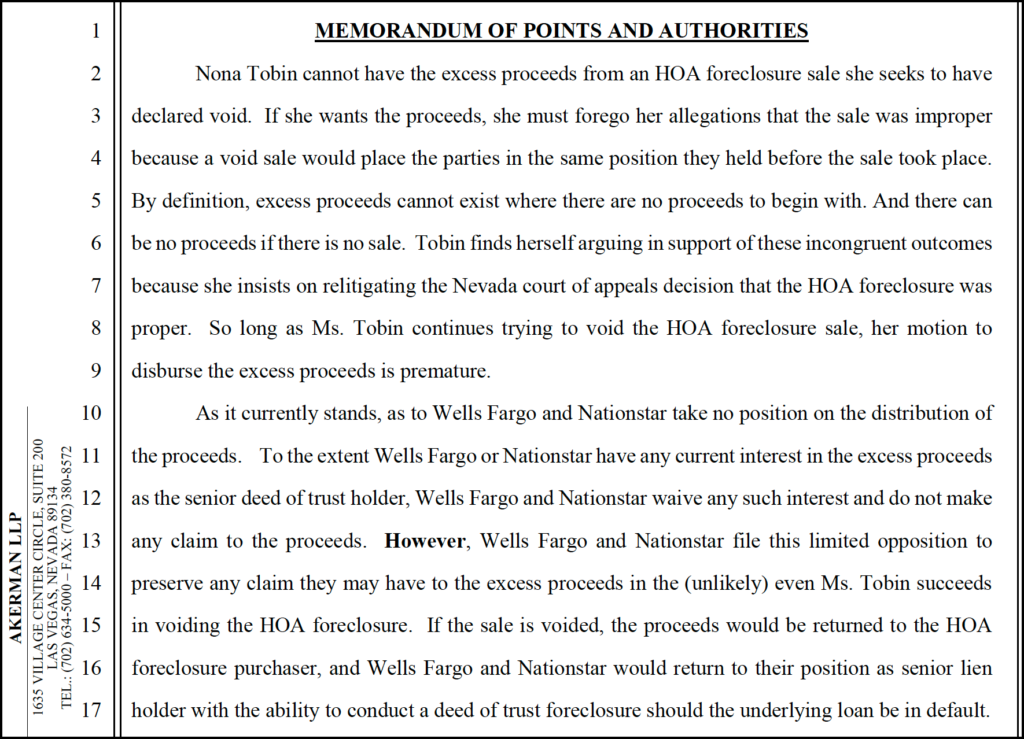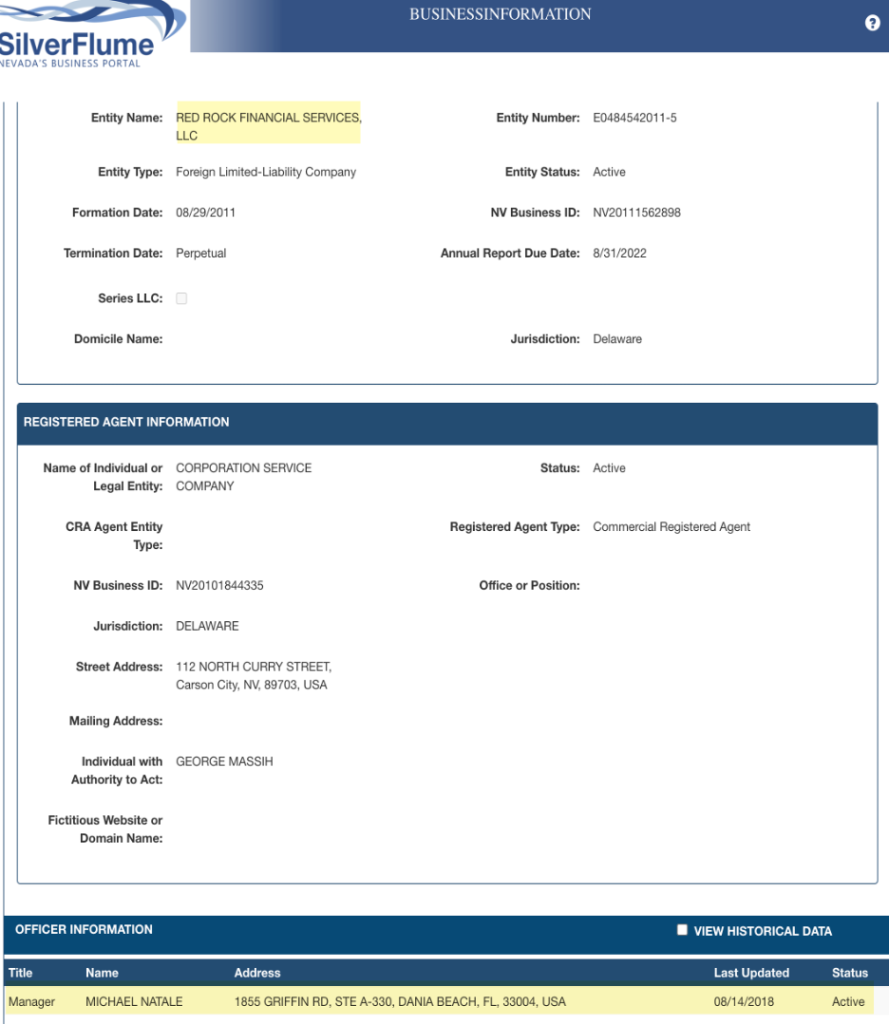The Nevada Revised Statutes define the grounds and procedure for disqualification
NRS 1.230 outlines the grounds for disqualification, which include both actual and implied bias.
NRS 1.235 sets out the procedure for disqualification, including the requirement to file an affidavit specifying the grounds for disqualification.
The Nevada Code of Judicial Conduct (NCJC) also provides guidance
The Nevada Code of Judicial Conduct (NCJC) also provides guidance on when a judge should disqualify themselves. NCJC Rule 1.2 requires judges to act in a manner that promotes public confidence in the judiciary, and NCJC Rule 2.11(A) requires judges to disqualify themselves when their impartiality might reasonably be questioned.
Violating NCJC does not promote confidence in the judiciary and creates a situation where the judge’simpartiality might reasonably be questioned.
Implicated NCJC provisions in my case
Rule 1.1. Compliance With the Law. A judge shall comply with the law, including the Code of Judicial Conduct.
Rule 1.2. Promoting Confidence in the Judiciary. A judge shall act at all times in a manner that promotes public confidence in the independence, integrity, and impartiality of the judiciary.
Rule 2.2. Impartiality and Fairness. A judge shall uphold and apply the law, and shall perform all duties of judicial office fairly and impartially.
Rule 2.6. Ensuring the Right to Be Heard.
(A) A judge shall accord to every person who has a legal interest in a proceeding, or that person’s lawyer, the right to be heard according to law.
Rule 2.9. Ex Parte Communications.
(A) A judge shall not initiate, permit, or consider ex parte communications, or consider other communications made to the judge outside the presence of the parties or their lawyers, concerning a pending or impending matter, except as follows:
(1) When circumstances require it, ex parte communication for scheduling, administrative, or emergency purposes, which does not address substantive matters, is permitted, provided:
(a) the judge reasonably believes that no party will gain a procedural, substantive, or tactical advantage as a result of the ex parte communication; and
(b) the judge makes provision promptly to notify all other parties of the substance of the ex parte communication and gives the parties an opportunity to respond.
(B) If a judge inadvertently receives an unauthorized ex parte communication bearing upon the substance of a matter, the judge shall make provision promptly to notify the parties of the substance of the communication and provide the parties with an opportunity to respond.
(C) A judge shall not investigate facts in a matter independently, and shall consider only the evidence presented and any facts that may properly be judicially noticed.
Rule 2.11. Disqualification.
(A) A judge shall disqualify himself or herself in any proceeding in which the judge’s impartiality might reasonably be questioned, including but not limited to the following circumstances:
(1) The judge has a personal bias or prejudice concerning a party or a party’s lawyer, or personal knowledge of facts that are in dispute in the proceeding.
Rule 2.15. Responding to Judicial and Lawyer Misconduct.
(C) A judge who receives information indicating a substantial likelihood that another judge has committed a violation of this Code shall take appropriate action.
(D) A judge who receives information indicating a substantial likelihood that a lawyer has committed a violation of the Nevada Rules of Professional Conduct shall take appropriate action.
Standard of review for assessing if the grounds for disqualification are met
The standard for assessing whether a judge’s impartiality might reasonably be questioned is whether a reasonable person with knowledge of all the facts would reach that conclusion.
The motion for disqualification must contain affidavits that meets this burden of proof that a reasonable person would also question the judge’s impartiality.
However, the burden of proof is on the movant as the judge is presumed to be unbiased.
“This court gives substantial weight to a judge’s decision not to recuse herself and will not overturn such a decision absent a clear abuse of discretion. Goldman v. Bryan, 104 Nev. 644, 649, 764 P.2d 1296, 1299 (1988), abrogated on other grounds by Halverson v. Hardcastle, 123 Nev. 245, 266, 163 P.3d 428, 443 (2007). A judge is presumed to be unbiased, and “the burden is on the party asserting the challenge to establish sufficient factual grounds warranting disqualification.” Id. at 649, 764 P.2d at 1299.
Impact of a disqualification motion
In Debiparshad v. The Eighth Judicial Dist. Court of State, 137 Nev. Adv. Op. 71 (Nev. 2021), the Nevada Supreme Court outlined the requirements for disqualification under the NCJC and relevant case law.
(“In Towbin Dodge, we noted that NCJC Rule 2.11, which requires a judge to “disqualify himself or herself in any proceeding in which the judge’s impartiality might reasonably be questioned,” does not contain a procedural mechanism for enforcement. Id. at 257, 259, 112 P.3d at 1067, 1069. We specified the procedure for moving to disqualify a judge pursuant to NCJC Rule 2.11, explaining that, as with an affidavit filed under NRS 1.235, a motion to disqualify under NCJC Rule 2.11 must include the facts upon which the disqualification is based and must be referred to another judge for decision. Id. at 260-61, 112 P.3d at 1069-70; see also Turner v. State, 114 Nev. 682, 687, 962 P.2d 1223, 1226 (1998) (applying, without discussion, the NRS 1.235 procedural requirements to a motion to disqualify under both the statute and the NCJC). ”)
Debiparshad v. The Eighth Judicial Dist. Court of State, 137 Nev. Adv. Op. 71, 8 (Nev. 2021)
How Debiparshad and Towbin Dodge support my case is two-fold:
1) the subject judge (Peterson in my case) can take no further action in the case until the motion to disqualify is resolved, and
2) the disqualification decision must be made by another judge.
This comes as positive news since it would be unreasonable to anticipate Judge Peterson recusing herself now, after 2+ years of ruling against me without any factual or legal justification. This includes her recent actions at an improperly noticed hearing held ex parte, where she issued an unwarranted vexatious litigant bench order against me in absentia, which was converted into a final judgment denying all my motions without notice, good cause, or an opportunity for opposition.
Why this drastic action is necessary rather than just filing an appeal
The order submitted on March 28, 2023, was composed in a manner that made obtaining a precise understanding of the facts and law nearly unattainable for the reviewing court. The judge followed the common practice of having opposing counsel draft the order, resulting in significant misrepresentation of material facts and legal matters. Appellate courts assume that the facts are unchallenged if the order states as such, and no opposition is present within the record.
My previous losses have occurred under these circumstances, where orders are written to suggest that the evidence and the law support the opposing argument.
My motion is timely to void all A-21-828840-C orders
My motion is timely to void all Judge Peterson’s orders as new grounds emerged due to the refusal to allow the 3/28/23 order to accurately reflect that it was issued ex parte without notice, just cause or an opportunity to ppose.
“[I]f new grounds for a judge’s disqualification are discovered after the time limits in NRS 1.235(1) have passed, then a party may file a motion to disqualify based on [Nevada Code of Judicial Conduct Canon 2 ] as soon as possible after becoming aware of the new information.”
Towbin, 121 Nev. at 256, 112 P.3d at 1067.
Judge Peterson’s impartiality canreasonably questioned be as these provisions of the Nevada Code of Judicial Conduct are alleged to have been violated.
The required affidavit with supporting evidence will be filed first to the Commission on Judicial Discipline as it has a Nevada Constitutional mandate to ensure that the Nevada judiciary complies with the NCJC.
Rule 1.2. Promoting Confidence in the Judiciary. A judge shall act at all times in a manner that promotes public confidence in the independence, integrity, and impartiality of the judiciary and shall avoid impropriety and the appearance of impropriety.
Rule 2.2. Impartiality and Fairness. A judge shall uphold and apply the law, and shall perform all duties of judicial office fairly and impartially.
Rule 2.6. Ensuring the Right to Be Heard.
(A) A judge shall accord to every person who has a legal interest in a proceeding, or that person’s lawyer, the right to be heard according to law.
Rule 2.7. Responsibility to Decide. A judge shall hear and decide matters assigned to the judge, except when disqualification is required by Rule 2.11 or other law.
Rule 2.9. Ex Parte Communications.
(A) A judge shall not initiate, permit, or consider ex parte communications, or consider other communications made to the judge outside the presence of the parties or their lawyers, concerning a pending or impending matter, except as follows:
(1) When circumstances require it, ex parte communication for scheduling, administrative, or emergency purposes, which does not address substantive matters, is permitted, provided:
(a) the judge reasonably believes that no party will gain a procedural, substantive, or tactical advantage as a result of the ex parte communication; and
(b) the judge makes provision promptly to notify all other parties of the substance of the ex parte communication and gives the parties an opportunity to respond.
(2) A judge may obtain the written advice of a disinterested expert on the law applicable to a proceeding before the judge, if the judge gives advance notice to the parties of the person to be consulted and the subject matter of the advice to be solicited, and affords the parties a reasonable opportunity to object and respond to the notice and to the advice received.
(3) A judge may consult with court staff and court officials whose functions are to aid the judge in carrying out the judge’s adjudicative responsibilities, or with other judges, provided the judge makes reasonable efforts to avoid receiving factual information that is not part of the record, and does not abrogate the responsibility personally to decide the matter.
(4) A judge may, with the consent of the parties, confer separately with the parties and their lawyers in an effort to settle matters pending before the judge.
(5) A judge may initiate, permit, or consider any ex parte communication when authorized by law to do so.
(B) If a judge inadvertently receives an unauthorized ex parte communication bearing upon the substance of a matter, the judge shall make provision promptly to notify the parties of the substance of the communication and provide the parties with an opportunity to respond.
(C) A judge shall not investigate facts in a matter independently, and shall consider only the evidence presented and any facts that may properly be judicially noticed.
(D) A judge shall make reasonable efforts, including providing appropriate supervision, to ensure that this Rule is not violated by court staff, court officials, and others subject to the judge’s direction and control.
Rule 2.11. Disqualification.
(A) A judge shall disqualify himself or herself in any proceeding in which the judge’s impartiality might reasonably be questioned, including but not limited to the following circumstances:
(1) The judge has a personal bias or prejudice concerning a party or a party’s lawyer, or personal knowledge of facts that are in dispute in the proceeding.
Rule 2.15. Responding to Judicial and Lawyer Misconduct.
(A) A judge having knowledge that another judge has committed a violation of this Code that raises a substantial question regarding the judge’s honesty, trustworthiness, or fitness as a judge in other respects shall inform the appropriate authority.
(B) A judge having knowledge that a lawyer has committed a violation of the Nevada Rules of Professional Conduct that raises a substantial question regarding the lawyer’s honesty, trustworthiness, or fitness as a lawyer in other respects shall inform the appropriate authority.
(C) A judge who receives information indicating a substantial likelihood that another judge has committed a violation of this Code shall take appropriate action.
(D) A judge who receives information indicating a substantial likelihood that a lawyer has committed a violation of the Nevada Rules of Professional Conduct shall take appropriate action.
Standard for Review
Other jurisdictions offer guidance on the standard of review as well
In evaluating the totality of the circumstances, the reviewing court should inquire into a variety of factors including, but not limited to, the nature of the judge’s conduct, the tone and demeanor of the judge, the scope of the judicial conduct in the context of the length and complexity of the case and issues therein, the extent to which the judge’s conduct was directed at one side more than the other, and the presence of any curative instructions, either at the time of an inappropriate occurrence or at the entry of the final order. When the issue is preserved so that the true facts are known and a reviewing court determines that the judge’s conduct pierced the veil of judicial impartiality, the court may not apply harmless-error review. Rather, the judgment must be reversed and the case remanded for a new trial.
A-21-828840-C orders are void
If the judge is disqualified because judicial impartiality can be reasonably questioned,
“Disqualification occurs when the facts creating disqualification arise, not when disqualification is established.”); see also Hoff v. Eighth Judicial Dist. Court, 79 Nev. 108, 110, 378 P.2d 977, 978 (1963) (“That the actions of a district judge, disqualified by statute, are not voidable merely, but void, has long been the rule in this state.”); Frevert v. Smith, 19 Nev. 363, 11 P. 273 (1886) (“[T]he general effect of the statutory prohibitions … [is] to render those acts of a judge involving the exercise of judicial discretion, in a case wherein he is disqualified from acting, not voidable merely, but void.”). ”
Debiparshad v. The Eighth Judicial Dist. Court of State, 137 Nev. Adv. Op. 71, 9-10 (Nev. 2021)
9/10/2021 Doc ID# 43 “Order & Judgment On Plainiff (Sic) Red Rock Financial Services, LLC’s Motion To Dismiss Counterclaimant Nona Tobin’s Counterclaim And Petition For Sanctions And Defendants/ Counterclaimant Nona Tobin’s Motion For Summary Judgement And Motion For Sanctions”
11/30/2021 Doc ID# 70 Order Clarifying Sept. 10th, 2021 Order and Mooting Notice of Default and Motion to Strike
11/30/2021 Doc ID# 71 Order Denying Nona Tobin’s Motion to Reconsider of Order Dismissing Nona Tobin’s Counterclaim and Petition for Sanctions and Defendant/ Counter-claimant Nona Tobin’s Motion for Summary Judgment and Motion for Sanctions
5/25/2022 Doc ID# 88 Order Denying Nona Tobin’s Motion For An Evidentiary Hearing To Set Aside 9/10/21 Order And 11/30/21 Orders Pursuant To NRCP 60(b)(3)(Fraud) And NRCP 60(d)(3)(Fraud On The Court) And Motion For Attorneys’ Fees And Costs Pursuant To EDCR 7.60(1) And (3), NRS 18.010(2); And, Denying non-party Red Rock LLC’s 12/28/21 Countermotions For Abuse Of Process and Denying non-party Red Rock LLC’s motion For A Vexatious Litigant Restrictive Order Against Nona Tobin And denying For Attorney Fees And Costs
1/9/2023 01/09/2023 Order Doc ID# 115 Order Granting in Part and Denying in Part Nona Tobin’s Second Amended Motion for an Order to Distribute Interpleaded Funds with Interest to Sole Claimant Nona Tobin and Motion for Attorney Fees and Costs Pursuant to NRS 18.010(2) and EDCR 7.60(b)(1) and (3) and Motin to Correct Nunc Pro Tunc Notices of Entry of Orders Entered on November 30 2021 and May 25 2022 and Granting in Part Red Rock Financial Services’ Countermotion for Abuse of Process; for a Vexatious Litigant Restrictive Order Against Nona Tobin and for Attorney Fees and Costs
1/16/2023 Doc ID# 117 Order Granting in Part and Denying in Part Nona Tobin’s Second Amended Motion for an Order to Distribute Interpleaded Funds with Interest to Sole Claimant Nona Tobin and Motion for Attorney Fees and Costs Pursuant to NRS 18.010(2) and EDCR 7.60(b)(1) and (3) and Motion to Correct Nunc Pro Tunc Notices of Entry of Orders Entered on November 30 2021 and May 25 2022 and Granting in Part Red Rock Financial Services’ Countermotion for Abuse of Process; for a Vexatious Litigant Restrictive Order Against Nona Tobin and for Attorney Fees and Costs
